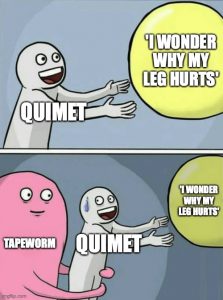This week we were tasked with reading the Soldier of Salamis; I don’t mean to sound harsh, but I just did not enjoy this book. It is a book that disinterested me, was too long, and was kind of confusing at times. I hate to be like this, and will try my best to write from the perspective of a book-disliker (mainly because that makes for a bleak review, and I believe there is something good in all novels); anyways, here we go. Something that I found to be interesting was the fact that Cercas used his own name as the main characters’ name as well; it added a layer of reality to the story, making it feel as if it was actually completely true. Although I did say I did not like the novel, something that I did particularly enjoy was the very strong connection this novel has to the theme of memory, specifically how memory can be revived, retold, and turned into something revitalizing and new. I found that Cercas spent most of his time trying to revive the memory of Sanchez Mazas, and even Figueras’ father. The second part of the book was interesting, and also supportive of the up keeping of Sanchez Mazas’ memory, because it recalls his life and perspective of what actually happened during the event that Cercas is so desperately trying to write about accurately in his novel.
Something that I found to be a bit difficult, but became more clear once I watched Jon’s lecture, was what exactly Falangism was; if anything, prior to understanding, I thought it had to do with the bones in my hand (get it? Because of phalanges… anyways.). Poor jokes aside, I saw the term pop up often here and there, and gaining that sort of understanding of context was really helpful to grasp the importance and significance of what exactly happened in the forest, and what references were made to rehabilitating falangist poets and writers in the early pages of part one. If it is true that falangism is similar to fascism, I was constantly thinking about why exactly did the militiaman save Sanchez Mazas? That may sound strange, or insensitive of me, but it was just a thought that constantly ran through my head as I read the novel.
Anyways, moving onto another theme that I found in the novel, which I sort of enjoyed, but found a little annoying; the constant repetition. Its almost as if the whole novel is founded on the idea of going back to this one minor event in the Spanish Civil War, specifically to what happened with Sanchez Mazas. Like I said before, part one and three are dedicated to Cercas’ novel, and part two is Sanchez Mazas’ perspective, which is basically all repetition of what happened. Repetition is pretty constant throughout Bolano’s Amulet (which is kind of ironic given Bolano’s presence within this weeks novel), the Old Gringo, and even the Shrouded Woman; these are all books that I read prior to this one. Repetition is one of the themes in this course that I love and dislike (hate is too strong a word in this context lol); it can be really engaging, but I didn’t really find it lived up to that meaning within this book. It felt very stretched out, and unnecessary. I understand that the information and drawing out of the book may be necessary to generate thoughtful discussion of the truth or falsity of the story. But I found it was a bit difficult to find such interest. Watching Jon’s lecture while reading the book helped to spark some more interest, but at the end of the day, I found myself sort of trudging through this novel. This week’s question that I pose is sort of basic, but something I would like to hear from others; what did you enjoy about the book (if you did)? What sparked interest and drew you into the aspects of the novel? As I said before, I found interest in some parts of the novel, but overall I wouldn’t say that I enjoyed it; this novel just isn’t for me.. and thats okay! I guarantee there is a positive audience for this novel. After all, it was chosen for this course for a reason!
